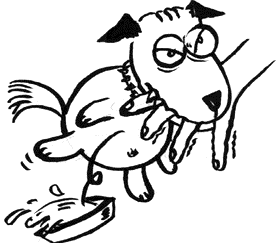Can We Persuade Congress to Bite the Hand that Feeds It?
The thought that Congress serves not the interests of its constituents, but those of its corporate benefactors, used to be reserved for cynics and conspiracy theorists. Now this line of thinking is so banal, so obvious, that it goes without saying. A huge majority (roughly 4 out of 5 Americans) now believes that the game is rigged, and there is virtually no real institutional reform possible without the complete overhaul of our campaign finance system.
And so, today’s news of a Republican Senate blockade of proposed financial regulations comes as little surprise to anyone. Now that the hammer is poised to come down upon the derivatives traders and other financial hooligans responsible for the deep recession, big banks and financial conglomerates have shifted their political donations to Republicans (see Goldman Sachs’ flip-flopping party loyalty from ’08 to ’10) with marching orders to obstruct any potential reform. But make no mistake, institutional lobbying machines support whomever it thinks can carry out its agenda. It rarely concerns itself with party rhetoric.
As a consequence of these new campaign windfalls, Senators like Massachusetts’ Scott Brown are often put in the position of opposing bills that their own constituents favor. Champion of internet freedom, Professor Lawrence Lessig points this out in a video made for an anti-political corruption organization called Change Congress.
As my old politics professor, Mark Roosevelt (grandson of Teddy) used to say, campaign finance reform is a pre-requisite for any real, substantive changes that you want to see happen. You cannot expect democratically supported reforms to take hold, without first restoring real, functioning, Democracy.
Read comments on this article, and add some feedback of your own
Originally posted on Technorati.





I much prefer ionmfrative articles like this to that high brow literature.